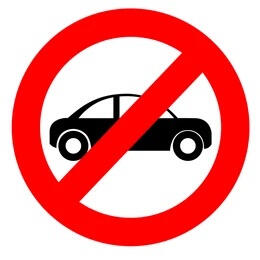
CARLESS
Cities For Humans Not Machines
Rethinking Cities, Reclaiming Our Streets.
We believe that the future of urban living should be free from the constraints of car dependency, where vibrant public transit systems and thoughtful city planning pave the way for healthier, more connected communities.
Imagine a world where streets are not dominated by vehicles, but designed for people—where public spaces are bustling with life, greenery flourishes, and air quality is pristine. By advocating for innovative solutions in city planning and robust public transportation, we are committed to creating urban environments that prioritize the well-being of individuals and the planet alike.
Environmental Degradation
The reliance on automobiles leads to significant environmental challenges, including air pollution and greenhouse gas emissions. Urban areas often suffer from heat islands and reduced biodiversity due to extensive impervious surfaces. Carless advocates for a car-free future to restore ecological balance and promote green spaces that enhance urban ecosystems.Public Health Concerns
Car dependency adversely impacts public health through increased pollution levels, which are linked to various respiratory and cardiovascular diseases. Additionally, sedentary lifestyles associated with car use contribute to obesity and related health issues. By promoting active transportation options like walking, biking, and public transit, we aim to improve physical health and reduce healthcare costs.Community Engagement
Carless champions the creation of lively public spaces that encourage community interaction. Parks, plazas, and pedestrian-friendly streets serve as vibrant venues for social gatherings, cultural events, and markets. These spaces strengthen social ties and foster a sense of belonging among residents, enriching the community fabric.Quality of Life
The stresses of car-centric living—such as traffic congestion and noise—diminish the overall quality of urban life. By envisioning cities that prioritize vibrant public spaces and accessible transportation, Carless seeks to enhance everyday experiences. This shift fosters a more enjoyable, connected, and enriching urban environment for all residents.Safety and Accessibility
Eliminating cars from urban areas increases safety, particularly for vulnerable populations like children and the elderly. Designing streets that prioritize pedestrians and cyclists ensures everyone can navigate their neighborhoods confidently. This approach enhances mobility and creates a more inclusive urban experience.Future-Proofing Our Cities
To effectively address climate change and urban challenges, cities must adopt forward-thinking planning practices. A car-free future is essential for sustainable urban development. By integrating innovative design and environmentally friendly practices, we can build resilient cities that are prepared to thrive in a changing world.